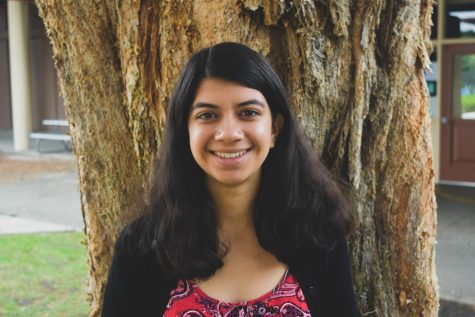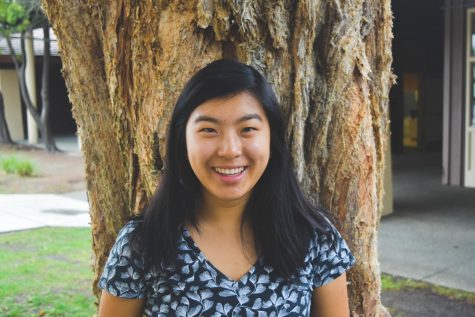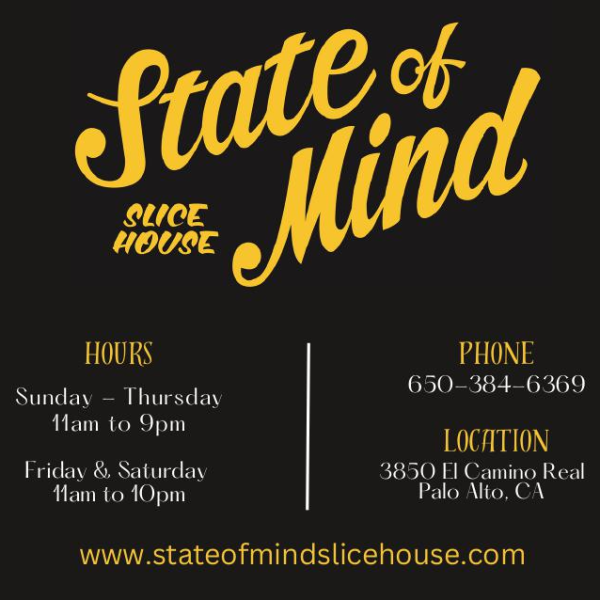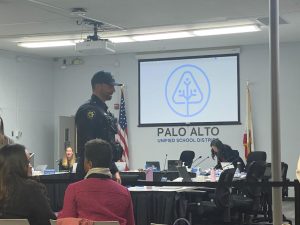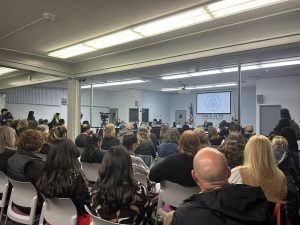Pressed for prestige: addressing our Ivy League fixation
April 12, 2019
When the college admissions scandal broke on March 12, it was the headline trending on every major news outlet. Parents and students across the world shook their heads and condemned white, aristocratic privilege. Olivia Jade became a household name. For us, the scandal hit especially close to home.
As three high school seniors from Palo Alto, the college admissions debacle is a big deal for us right now. First, it’s spring, meaning we are in the throes of deciding on colleges. Second, two of the individuals charged in this case are members of our own community — both parents of a current Palo Alto High School student, one of our senior classmates.
One month after the scandal, we can’t help feeling Operation Varsity Blues has shone a spotlight on a much broader problem in our society: applicants and parents have been misled into believing that the sole path to success is through highly prestigious, extremely selective colleges. According to Paly College and Career Counselor Sandra Cernobori, the evidence points elsewhere.
“College is perceived to be really high stakes,” Cernobori said. “I don’t necessarily agree with that perception. … I think students can be successful at many colleges because I don’t think the college is what defines or creates the success. I think the skills that you bring, the attitudes, the preparation all contribute to that success.”
Numerous research studies support this idea. A 2014 Time Magazine article stated, “Whether you went to Penn or Penn State, Williams College or Miami University of Ohio, job outcomes were unaffected in terms of earnings.” And according to the Atlantic in 2018, “in most students, the salary boost from going to a super-selective school is ‘generally indistinguishable from zero’ after adjusting for student characteristics, such as test scores.”
Cernobori attributes the pervasive belief that the only acceptable college to attend is a prestigious one to the university ranking system. But in her words, “selectivity doesn’t breed success.” Studies from Challenge Success, a nonprofit organization affiliated with the Stanford Graduate School of Education, indicate that one student’s perfect fit may be wrong for another, which means that it is impossible to build a uniform ranking system that works for everyone.
“Traditional college rankings measure a set of factors that are weighted arbitrarily, drawn from data that are most easily quantifiable and comparable, sometimes poorly documented, and not always relevant to undergraduate education,” the Challenge Success team wrote in a 2018 White Paper.
On top of this pressure, Cernobori said that parents often exacerbate student stress through “cocktail party bragging.” Shameless boasting by Ivy League parents and prying questions at social gatherings expose anxious seniors to the unsolicited advice and judgment of adults who are often out of touch with the modern admissions process.
“I think the college application process is personal,” Cernobori said. “I don’t think that it’s anybody else’s business. I understand that because people have anxiety they want to talk about it … but what that does is that it just fans the flames of fear.”
In our tech-centric community where research is key, it’s shocking that the data behind college admissions is often brushed aside. Without a culture shift away from the belief that exclusivity trumps fit and prestige begets prosperity, the motivation for college admissions shortcuts will always be present.
“Am I surprised that cheating happened in the college admissions process?” Cernobori said. “I wish I could say I was surprised. There’s nothing wrong with wanting the best for your child, but the best doesn’t mean the most selective school.”


